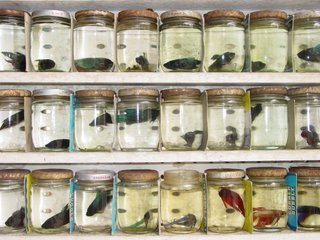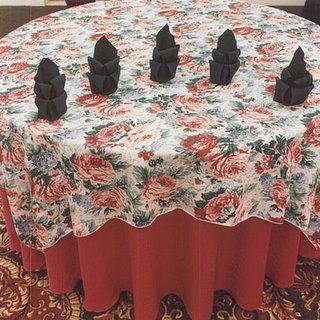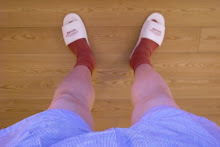A Peculiar Pig
Wang Xiaobo's story
When they sent me to the countryside, I fed pigs and herded cows. Of course, these animals could manage fine without people. They'd saunter about eating and drinking, falling in love as spring comes. Simple lives, nothing of consequence. But when people come along, their lives get organized. Each cow, every pig, they all get given a purpose. For most, it's a tragic one. The former laboring, the latter fattening. I don't think that's much to complain about though. My life at the time wasn't much better - nothing to do but watch the revolutionary operas.
A few cows and pigs though, get their own purpose. Take pigs. The boar and the sow have got more to do than just eat, even if they didn't seem to like it that much to me. The boar's mission is to mate - you might say it was our policy to let him sleep around. But only when they brought out a barrow a castrated boar did the worn-out boar act like a real man, leaping up onto the sow's back. The sow's mission was to bear children, but some ate them instead. Anyway, people make pigs miserable, but they still cope. Pigs are pigs, after all.
It's only people that make all these arrangements, and not just for animals. In Sparta, things were arranged to the point of monotony, to turn the men into fearless fighters and the women into breeding machines, one like fighting cocks, the other a herd of sows. Very special animals, but they can't have enjoyed their lives. What could they do though? People, animals - none of us can change our fate.
There was one pig I fed who was a bit different. He was about four or five, a barrow but dark and thin with bright eyes. This one was agile like a goat, bounding a meter high fence in a single leap, or jumping cat-like onto the roof of the pen. He was always wandering about, hardly ever staying inside the fence. Us young intellectuals treated him like a pet, and he was my favorite too - because he only liked us. He'd let us get close to him, but he'd run from anyone else. Being male, he should have been castrated - but just you try it. He'd sniff out the spaying knife hidden behind your back and stare and snort at you.
I always fed him the best of the slops, and only when he'd finished would I pour the rest on the ground for the others. They all got jealous and filled the air with their wailing, but neither of us cared. When he'd had enough he'd jump onto the roof to sunbathe or practice his sounds. He could do a car horn, a tractor - all very accurate.
Sometimes you wouldn't see him all day. I think he must have gone to the nearby township looking for sows. We had sows, but they were all locked up in the pen, distorted by too many pregnancies, dirty and smelly - so he wasn't interested. The township's sows were a bit better looking. He had a lot of interesting stories to tell, I'm sure. I didn't feed the pigs for long though, so I don't know too many and I might as well skip them altogether.
Anyway, all the young intellectuals who did pig-feeding duty liked this independent pioneer, and said he lived with style. The villagers weren't that romantic though, they called him abnormal. The leaders even hated him, as we'll see later. I didn't just like him - I respected him. Sometimes I even forgot how old I was, and thought of him as my elder brother.
Like I said, this brother of mine copied loads of sounds. I'm sure he'd tried to learn to speak - if only he'd succeeded, we could have spoken heart-to-heart. You can't just blame him though. Pigs' and peoples' voices are too different. Later, he learnt to copy a steam whistle, and this got him in trouble. There was a sugar factory there, and the whistle on the boiler would blow at noon for the change of shift. When we heard it from the fields we would finish and come back. My pig brother would jump up on the roof at ten every morning to practice his steam whistling, and everyone in the fields would hear it and come back - an hour and a half earlier than the sugar factory's whistle.
To be honest, it wasn't all his fault. It's not as if he was really a boiler, and the sound was different, but the villagers always claimed they couldn't tell. So, the leaders had a meeting and accused him of being a bad element, ruining the spring plowing. They threatened to punish him. I knew what the meetings were for, but I wasn't worried. Even if punishment meant ropes and knives, they'd have no chance. The previous leaders had tried, but even a hundred people couldn't catch him. Dogs weren't any use - pig brother moved like a torpedo, knocking them through the air. But who could have known they'd be out in force this time?
The political instructor brought -odd people with May 5th rifles, the assistant political instructor had a dozen with firelocks and they trapped him between two lines outside the pigpen. And what should I have done? As his friend I should have grabbed a pair of pig-slaughtering knives and run up to him, standing shoulder to shoulder. But that seemed just a bit too odd - I mean, a pig's a pig, after all. Plus, I didn't dare go against the leaders, and maybe that was the real reason.
So, I watched from the side, admiring his composure as he stood firm between the guns. The men shouted and the dogs barked, yet he didn't budge. That way, if the rifles fired they'd kill the men with pistols, and vice versa. And if they both fired, they'd all die. But he was a smaller target, and he'd probably be fine. After a few circuits he found a gap, pushed his way through and fled proudly.
I saw him once, in the sugarcane fields. He'd grown tusks, and he recognized me, but he wouldn't let me get close. His coldness made me sad, but I could understand why he wanted to keep his distance from us people and our dark plans.
I'm forty now, and apart from that pig I've seen no one who dared to ignore life's constraints like that. Yet I've seen plenty who want to organize other people's lives, and others who simply accept life's organizations. And so, I always remember that peculiar pig.




 IMAGE CREDIT: CHRIS L.G. HILL "in caramel slice we lust"
IMAGE CREDIT: CHRIS L.G. HILL "in caramel slice we lust"